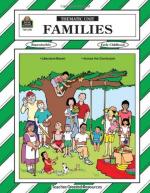|
This section contains 6,394 words (approx. 22 pages at 300 words per page) |

|
SOURCE: Barber, C. L. “The Family in Shakespeare's Development: Tragedy and Sacredness.” In Representing Shakespeare: New Psychoanalytic Essays, edited by Murray M. Schwartz and Coppélia Kahn, pp. 188-202. Baltimore: Johns Hopkins University Press, 1980.
In the following essay, originally published in 1976, Barber argues that Shakespeare offered a “post-Christian” resolution to the symbolic representation of family interaction in his tragedies, particularly in King Lear.
The loss that we feel in Shakespeare's greatest tragedies is not just the loss of human beings, though that is part of it; nor yet the loss of heroic human beings, though that is a great deal of it. I think our deepest sense in the greatest tragedies is the loss of what one can call the sacred-in-the-human. The qualm of awe we feel comes from the fact that the sacredness the tragedy generates is shown by the logic of the tragic action to be...
|
This section contains 6,394 words (approx. 22 pages at 300 words per page) |

|


